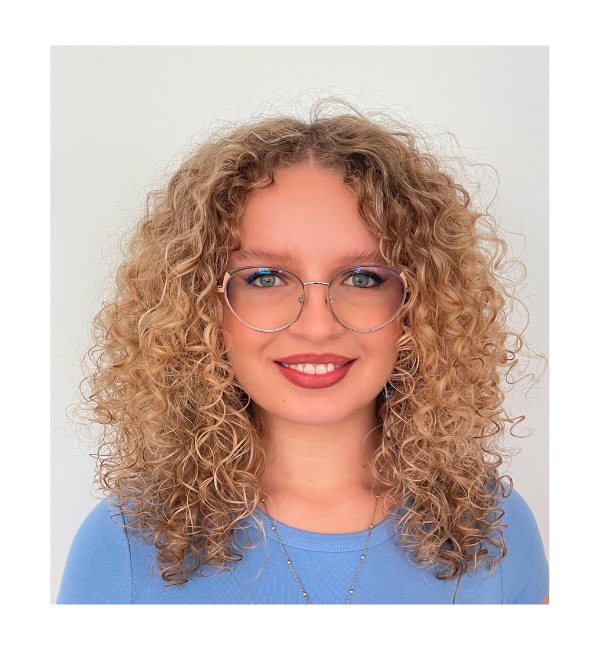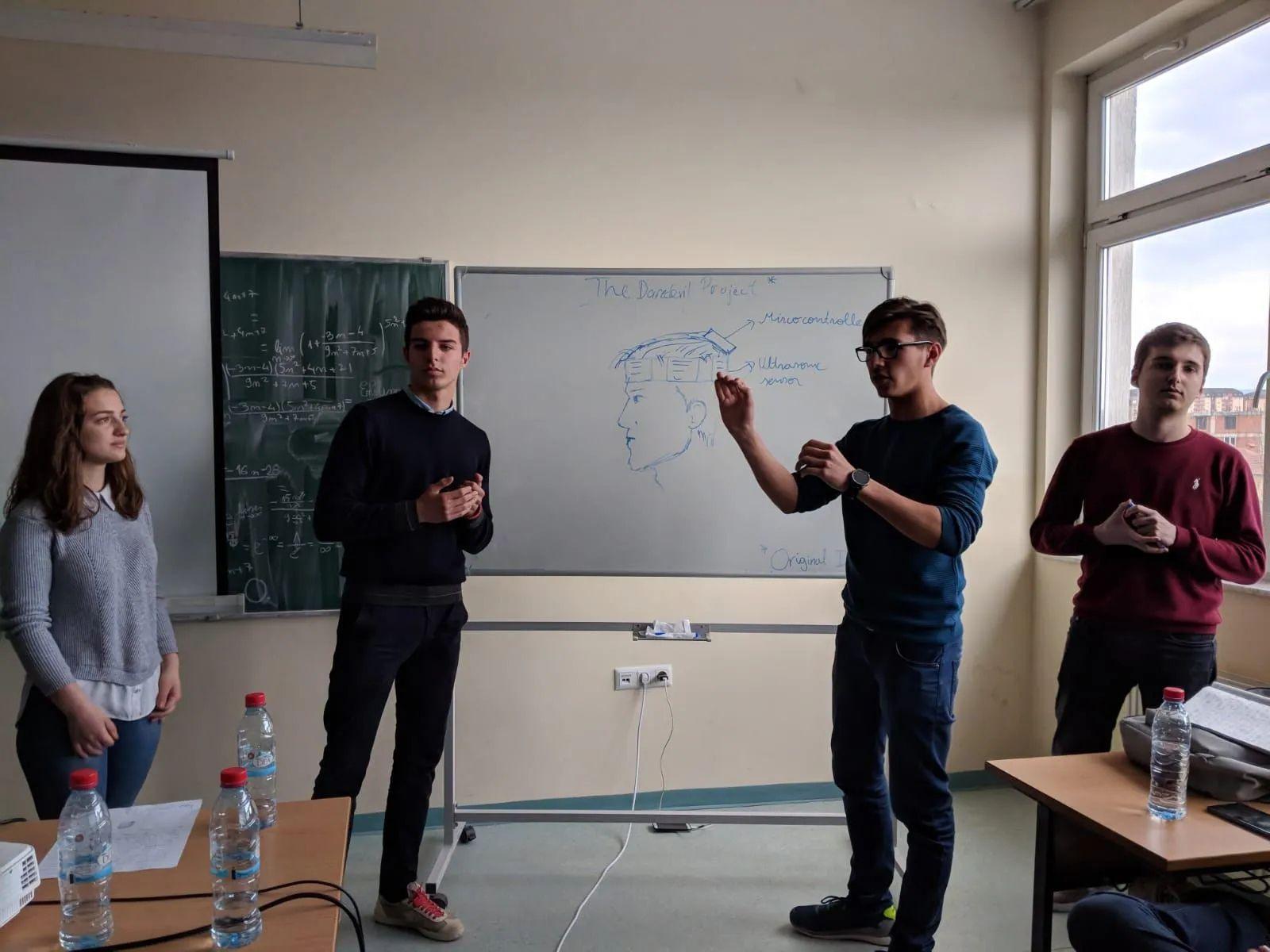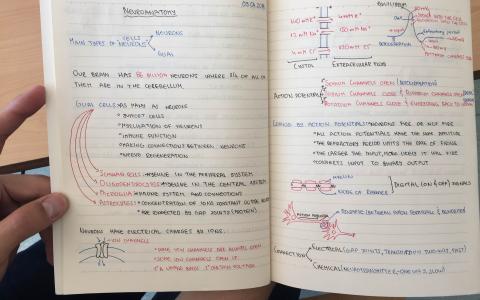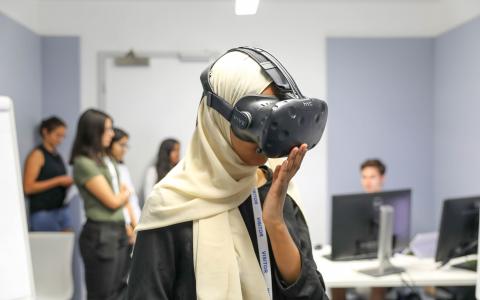
Igniting a passion for neuroscience - A case study from BrainCamp Kosovo
In the heart of Kosovo’s capital city Pristina, a unique programme called BrainCamp is changing lives. Founded and organised by SWC PhD alumni Egzona Morina, BrainCamp aims to introduce neuroscience education and career opportunities to young people in Kosovo. We spoke to Laura Dragusha, currently a student at Yale University, whose journey into neuroscience began after taking part.
Discovering BrainCamp
Laura first learned about BrainCamp through the ATOMI Institute, an organization in Kosovo that supports students with extraordinary potential. ATOMI collaborated with BrainCamp, and as a high school student intrigued by the brain, Laura was excited to participate. “It was my first real opportunity to learn about how the brain works, something not covered extensively in school,” she recalls. The programme proved to be transformative.
“It was during BrainCamp that I fell in love with neuroscience,” says Laura. “It was unlike anything I had experienced before. We discussed complex topics like memory, Alzheimer's disease, and dementia. I remember taking detailed notes and sharing everything I learned with my family in the evenings.”
Career impact
Laura’s experience with BrainCamp didn’t end after the week of the camp, as the door opened to a future she hadn’t previously imagined. Following her participation, she remained in contact with Egzona, who encouraged and supported her in applying to study at Yale, majoring in neuroscience.
“When I was working on my application to Yale, Egzona was there every step of the way,” says Laura. BrainCamp featured heavily in her application, not only as her introduction to neuroscience, but also as her inspiration.
Laura attributes much of her acceptance to Yale to the influence of BrainCamp. “It completely changed the trajectory of my life,” she says.

Expanding horizons through research
Laura specifically recalls lectures from BrainCamp on the history of neuroscience – the stories of how physicians in the ancient world would observe the effects of head injuries leading to hypotheses and discoveries about the brain. She also remembers talks of how neurons communicate. Those discussions have stayed with her over the years.
Now in her second year at Yale, Laura’s passion for neuroscience has continued. “This past summer, I worked with Professor Corlett. We conducted research on the creation of false memories in individuals with psychosis. It was my first hands-on research experience, and it was very motivating.”
Laura sees her future in science. “I want to continue researching, especially in the field of memory. I’ve been influenced by incredible mentors and experiences, starting with BrainCamp.”
Broader impacts of BrainCamp Kosovo
Laura isn’t the only student whose life was altered by BrainCamp. She notes how the program impacted her peers as well. “Many students, even if they didn’t change their major to neuroscience like I did, changed their mindset. They became more open-minded. They started considering studying abroad and exploring new academic fields.”
“Having a week-long interaction with researchers and students from different backgrounds is powerful. I hope that BrainCamp is expanded beyond Kosovo because so many students, without even knowing it, need this kind of experience.”
A call for global collaboration
Laura is also an advocate for international collaboration in shaping young minds. “BrainCamp introduces knowledge that everyone should have but isn’t typically included in schoolbooks. Programs like this, which bring students and experts together from across the globe, are essential.”
The programme has expanded in the years since Laura took part. In one of the years in which the course was held online, there were 24 volunteer teachers from around the world and over 120 students from five different countries - Kosovo, Albania, North Macedonia, Latvia and Hungary. The 2024 BrainCamp brought together 59 high school students from Pristina, Prizren, and the ATOMI Institute. Laura hopes to return in future years as a mentor.
BrainCamp was more than just a week-long programme for Laura, it was the start of a new direction.

About SWC and BrainCamp
The Sainsbury Wellcome Centre has supported BrainCamp both financially and in terms of volunteers since Egzona started the programme in 2018. SWC and GCNU staff who have volunteered so far include Shanice Bailey, Edmond Chong, Federico Claudi, Joseph Cohen, Orsolya Folsz, Jesse Geerts, Francesca Greenstreet, Christopher Hall, Ali Haydaroglu, Alice Koltchev, Anna Lebedeva, Marta Maciel, Nicole Maug, Zane Mitrevica, Egzona Morina, Sarah Olesen, Quentin Pajot-Moric, Francesca Pozzolo, Philip Shamash, Flora Takacs, Emmett Thompson, Simon Thompson and Peter Vincent.


